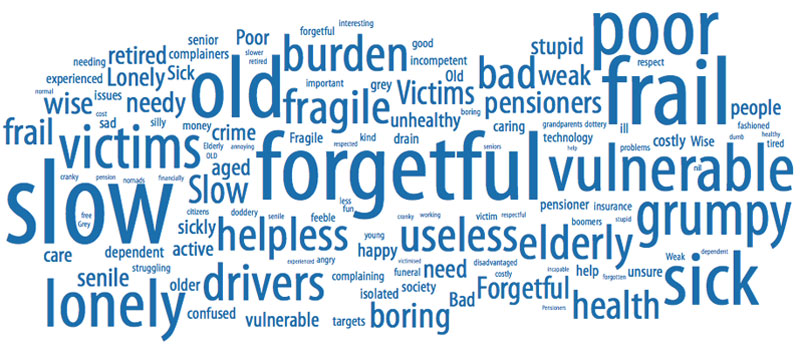The Final Chapter Well Lived
"One of the best predictors of successful aging is the ability to disengage from unattainable goals.""While grit and perseverance might be most important for younger people, the elderly with the best psychological outcomes let go of things they can't do any more and shift toward things they can still do that are purposeful."Carsten Wrosch, psychology professor, Concordia University, Montreal

"In my work with older patients, we often engage with the question 'What has it all been about?""It is powerful to help them construct their life stories and to witness how this leads to a sense of peace and acceptance of whatever comes next.""Significant transition or change can lead to an existential crisis, a chance to re-evaluate life and to eventually align it more with your values."Herbert Rappaport, clinical psychologist, Philadelphia"I fear that this just adds more pressure [when popular psychology urges the discovery or to create meaning in life] for people that this can become another reason to feel guilty and ashamed -- 'I've failed because I haven[t found the meaning of my life."Joel Vos, psychologist, author, Meaning in Life"Numerous studies show that people who have high death anxiety suffer from psychological problems and disorders.""In general, death anxiety subsides later in life. But for some elderly, it can be very high and contribute to their depression and anxiety."Rachel Menzies, clinical psychology post-doctoral research fellow, University of Sydney
 Late-life depression, researchers have found, increases self-neglect, cardiovascular problems, morbidity and risk of suicide while it also leads to worse social and cognitive functioning, compromising quality of life. Heart problems and high blood pressure among other health concerns have been linked to geriatric anxiety.
Late-life depression, researchers have found, increases self-neglect, cardiovascular problems, morbidity and risk of suicide while it also leads to worse social and cognitive functioning, compromising quality of life. Heart problems and high blood pressure among other health concerns have been linked to geriatric anxiety. Risk factors for geriatric depression and anxiety have been illuminated through studies. Those elderly are more likely to experience psychological problems, particularly depression when they are among those who deal with serious age-related physical handicaps as well as cognitive decline. They tend to be lonely; often they are in a state of grieving or dealing with loses.
They have much in common in depression outcomes with elderly people who bear regret mourning a life they consider not to have been well lived, and who struggle to find meaning in their lives. As people reach into their declining years a host of existential concerns loom foremost in their minds. Taken for granted that the older people become the more they reminisce over long-ago events, psychologists find value for them in recalling those events.
 |
| Erikson: feeling a sense of accomplishment |
Erik Erikson, one of the most influential psychologists of the 20th century, thought the final stage of life focused on reviewing life, integrating positive and negative memories and ending with a coherent sense of a purposeful life; in other words, one of satisfaction. People who experienced a particularly difficult time with the process might feel despair at the conclusion of their personal processing of the past, he postulated.
According to research, thoughtful reviews of a life from the perspective of the past to the present has the effect of improving mental health, an affirmation of a life lived. Individuals who are depressed find the process difficult in recalling positive events or reflecting backward as their lives progressed in ways neither negative nor self-critical. These people tend to recall events generally, as abstract events lacking detail.
They are guided toward a strategy to emphasize the positive in situations past, recalling good times in their lives and in so doing sketching in their minds a recall of details in concrete and sensory mode, as much as possible. During the period of the pandemic many people appear to have gained clarity surrounding what really matters in life, centering on thinking beyond oneself to connect with others.

Transcending the dour appeal of negative thought and conclusions can be achieved through other means such as focusing on creating something worthwhile. Lending one's support to charitable groups, tending a garden, indulging in expressing one's aesthetic through painting or a hobby, can all elevate mood and create a sense of satisfaction. As can re-connecting with religious devotion.
The presence of a worldwide catastrophic event such as the global pandemic which has exacted a death toll of 750,000 in the United States and close to 30,000 in Canada has turned many people toward contemplating illness, incapacity and death. The end of life becomes more immediate and more acutely imagined than at any other time in recent history. Its impact carries a grim toll on everyone.
 |
| Avoidance of negativity |
Labels: Depression, Elder Years, Therapy

0 Comments:
Post a Comment
<< Home